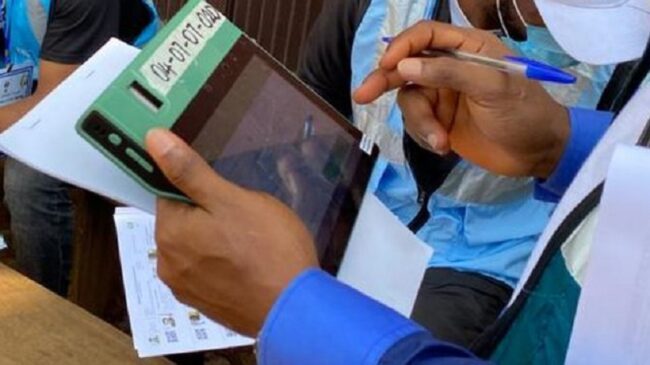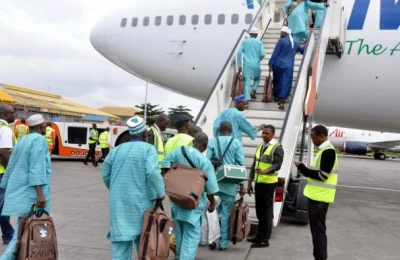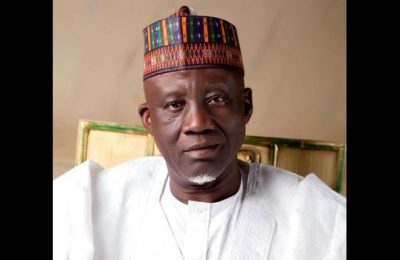
“Our hope is that we are able to mobilise their input to support INEC’s systems, strengthen INEC’s systems”
Ahead of the 2023 General Elections, a Civil Society Group under the umbrella of, “Diasporans for Good Governance (DGG), has urged the Independent National Electoral Commission, INEC, to Subject the various systems begin used by the Commission for the conduct of the 2023 polls to a multi Stakeholders’ audit and integrity test.

Addressing newsmen in Abuja, the President of the group, Amb Camillus Konkwo pointed out that such systems include the Automated Biometric Identification System (ABIS), the Bimodal Voter Accreditation System (BVAS), the Automatic Finger Identification System (AFIS), as well as the voter register among others.
Konkwo, who was represented by a member of the group, Chima Christian, said that there was evidence that the systems were not as credible as advertised by the Commission.
He said such an audit became necessary in order to restore Nigeria’s confidence in the entire electoral process.
“Our hope is that we are able to mobilise their input to support INEC’s systems, strengthen INEC’s systems and technical competencies and motivate commitment and the highest level to promote better management of the 2023 elections.
ALSO READ: Top 10 States with the highest number of registered voters as of January 2023
“Out of 2.78 million Nigerians that were invalidated by INEC, we noticed that 49.3 percent of those are from the South-South and South-East regions. Other regions of the country had an average rejection rate of 17 percent. Whereas the South-East and the South-South had an average rejection rate of 35.2 percent, almost twice that of the national average.
“And we have looked at the data and INEC says it used the ABIS system to do the invalidation based on the three criteria it listed on its website.
“One of which is double or multiple registrations, the second is visibly underage registrations and the third is outrightly fake registrations that did not meet INEC’s business rules.
“And we looked at these systems and we found out that the ABIS is not as credible and as efficient as advertised.
“One key example is to be found in the voter register that was just displayed. In that voter register, Nigerians saw multiple incidences of underaged registrations, outrightly fake registrations and some of these registrations that did not meet INEC’s business rules.
“And the DGG is saying with a compromise voter register that the elections cannot be credible and if INEC is advertising ABIS as the software that it used to process all those registration requests, then what the voter register is suggesting to us is that he software is not as efficient as advertised because that same software that invalidated 1.78 million Nigerians previously failed to track and eliminate the multiple incidents of the underage voters as you can from the voter register that is displayed.
“It is on that, that we are calling on INEC and Nigerians to subject these systems to a multi-stakeholder audit and integrity test because the only things Nigerians know about these systems are what INEC has told us and from what we know these systems are not working as advertised,” he said.








